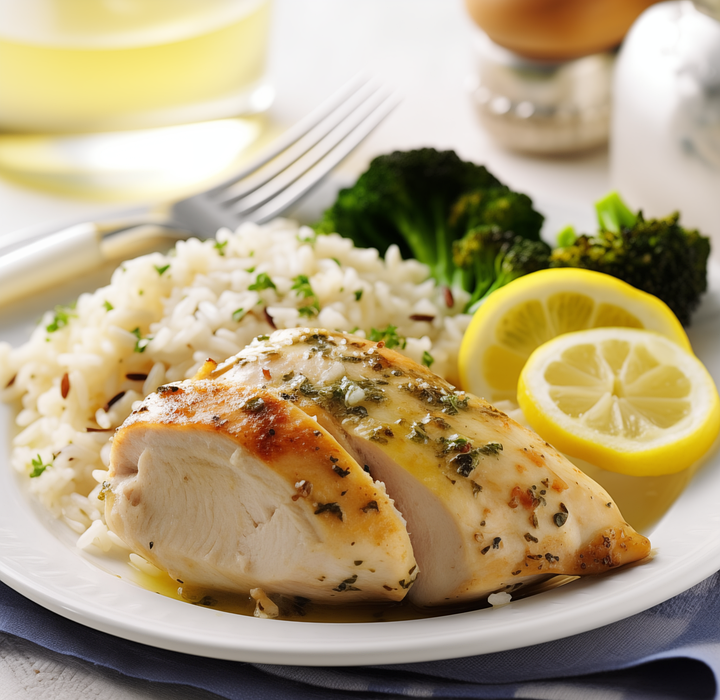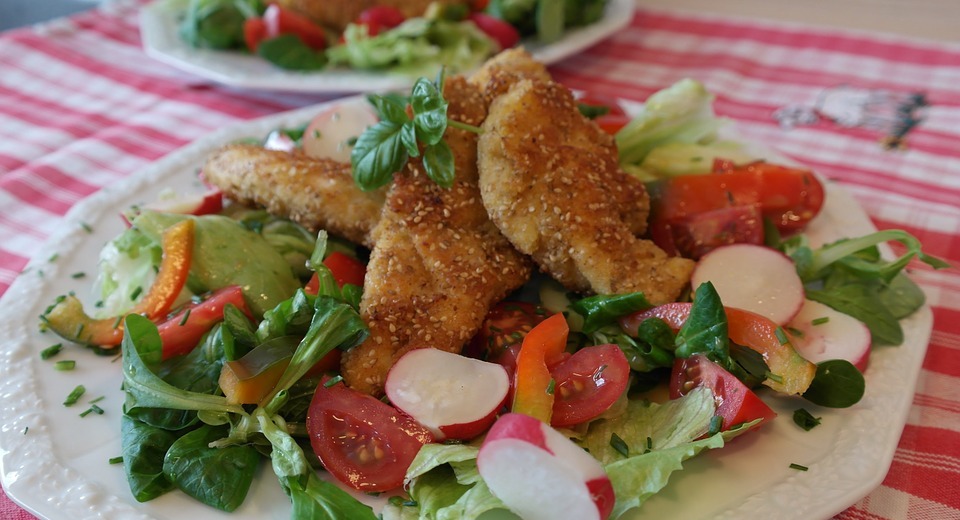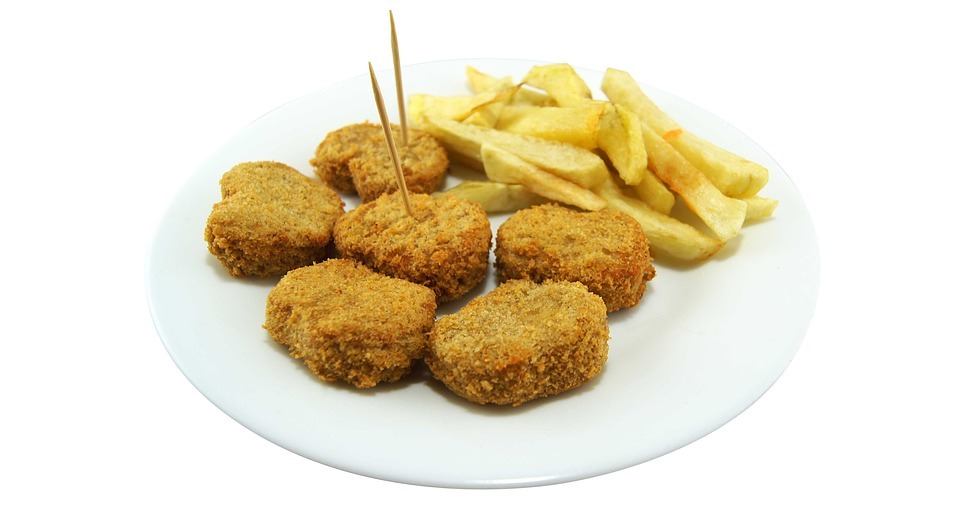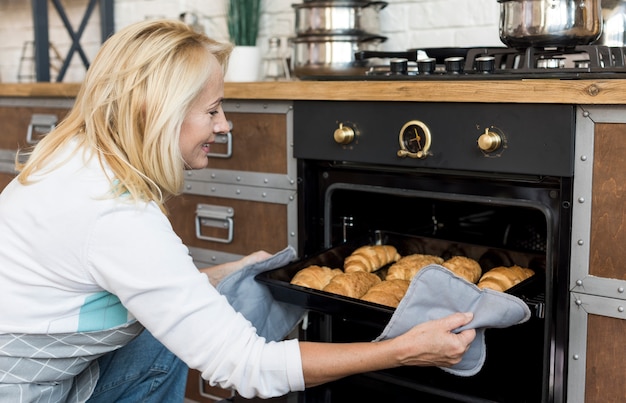Let's face it, we all love a good chicken thigh. They're succulent, flavorful, and incredibly versatile. But how long do you cook them for to get that perfect balance of crispy skin and juicy meat? It's a question that has plagued many a cook, and I'm here to share my hard-earned wisdom (and a few burnt-bottom mishaps along the way) to help you conquer the art of pan-frying chicken thighs.
(Part 1)
The Chicken Thigh: A Culinary Hero

First things first, let's sing the praises of the humble chicken thigh. Forget those dry, boring chicken breasts – the thigh is where it's at! Packed with flavor and forgiving to even the most novice cook, these little gems can handle a bit of heat and still emerge moist and delicious. And let's be honest, there's just something satisfyingly rustic about them. They're the good ol' boys of the poultry world, always there to deliver a hearty meal.
Why Chicken Thighs Are the Best: A Deeper Dive
Now, I'm not just throwing around compliments here. There's science behind the chicken thigh's superior status.
More Fat = More Flavor: Those beautiful fat streaks within the muscle are what give the thigh its rich, succulent flavor.
Higher Moisture Content: This is why chicken thighs are less prone to drying out, even if you overcook them a tad.
Versatility: They can be roasted, grilled, baked, or pan-fried, making them the perfect canvas for your culinary creativity.
The Pan-Frying Process: A Step-by-Step Guide to Success

Ready to get your hands dirty? Here's a breakdown of how to pan-fry chicken thighs like a pro:
1. Setting the Stage: Choosing the Right Pan and Heat
A good pan is your foundation. Think cast iron – a classic for a reason. Its even heat distribution will ensure your thighs cook beautifully. If you don't have a cast iron, opt for a heavy-bottomed stainless steel pan.
Now, crank up the heat! Aim for medium-high. You want your pan hot enough to sear those thighs, creating a crispy, golden-brown crust. Trust me, that hot pan makes a world of difference.
2. Oil: The Secret to Crispy Skin
Don't skimp on the oil. A generous amount will help those thighs brown beautifully and create a luscious, crispy skin. I'm a fan of neutral oils with high smoke points like canola or vegetable oil – they won't burn or impart any unwanted flavor. Olive oil can work, but be mindful of its lower smoke point.
3. Seasoning: A Symphony of Flavors
Before they hit the pan, give your thighs a good sprinkle of salt and pepper. This is the foundation for flavor. Don't be afraid to get creative here – a dash of paprika, garlic powder, or even a blend of your favorite herbs can elevate your chicken to new heights.
4. The Golden Rule: Patience and Timing
With your hot pan and seasoned thighs ready, gently place them into the oil, making sure they have enough room to breathe. We're aiming for even cooking, and overcrowding will just lead to soggy results. Let those beauties cook undisturbed for 4-5 minutes on each side. You'll know they're ready when they're a glorious golden brown and slightly firm to the touch.
5. The Flip: One Delicate Dance
This is where your timing skills come into play. Resist the urge to keep flipping the thighs. You want to flip them only once, halfway through cooking. This minimizes the chance of drying out the meat and ensures a more even cook. Let them cook undisturbed until they reach the magic internal temperature (more on that later).
The Tell-Tale Signs of Perfectly Cooked Chicken Thighs

How do you know when those beauties are done? Keep a keen eye out for these telltale signs:
1. The Golden Glow: A Visual Cue
Your thighs should be a beautiful, even golden brown on all sides. No pinkness remaining means they're ready to shine.
2. The Firm Touch: A Texture Test
Give them a gentle poke – they should feel firm and springy, not soft and jiggly.
3. The Internal Temperature: The Ultimate Confirmation
The gold standard for knowing your chicken is cooked through is using a meat thermometer. Insert it into the thickest part of the thigh, avoiding bone, and aim for an internal temperature of 165°F (74°C). This ensures food safety and guarantees delicious, juicy chicken.
The Great cooking time Debate: Deciphering the Variables
So, how long do you actually cook those thighs? This is where it gets tricky. It all boils down to a few key factors:
1. Size Matters: The Thicker the Thigh, the Longer the Cook
A thicker thigh will naturally take a bit longer to cook through. That's why it's crucial to use a meat thermometer – it's the only reliable way to be sure.
2. Bone-In or Boneless: A Difference in Cooking Time
Bone-in thighs tend to hold in heat, so they might need a few extra minutes to cook through. Boneless thighs, on the other hand, cook a bit faster.
3. Skin-On or Skinless: A Game-Changer for Texture
Skin-on thighs can handle a bit more heat and cook a little longer, allowing the skin to crisp up beautifully. Skinless thighs, however, will cook faster and require a shorter cooking time.
Understanding Internal Temperature: The Key to Safety and Success
Let's delve a bit deeper into the importance of that trusty meat thermometer.
The Internal Temperature Rule: Never Compromise
It's not just a suggestion, it's a necessity. Ensuring your chicken reaches 165°F (74°C) guarantees that it's cooked safely and thoroughly, protecting you from any foodborne illnesses.
How to Use a Meat Thermometer: A Simple Guide
It's a piece of cake! Insert the thermometer into the thickest part of the chicken, avoiding bone. Give it a few seconds to register the temperature. Then, you're golden!
The Rest: A Crucial Step Often Overlooked
Once your chicken is cooked, don't rush to the table. Give those thighs a 5-10 minute rest before slicing and serving. This might seem like a small detail, but it allows the juices to redistribute throughout the meat, resulting in a more tender, juicy, and flavorful chicken.
Variations and Ideas: Unleashing Your Culinary Creativity
Now, it's time to have some fun! Pan-frying doesn't have to be boring. Experiment with these flavor-packed variations:
1. Herbs and Spices: A Touch of Freshness
Fresh herbs are the perfect way to add a burst of aroma and flavor to your chicken. I love a classic blend of rosemary and thyme, but feel free to play around with your favorite herbs like sage, oregano, or parsley.
2. Lemon and Garlic: A Zesty Combination
The tangy acidity of lemon juice cuts through the richness of the chicken, while the garlic adds a pungent aroma and delicious depth of flavor. This pairing is a true classic for a reason.
3. Dijon Mustard: A Tangy Kick
For a touch of heat and tang, try a drizzle of Dijon mustard. Its sharpness will add another dimension to your chicken, making it a little more exciting.
4. Honey and Soy Sauce: Sweet and Savory Bliss
This combination takes those pan-fried chicken thighs to a whole new level. The honey adds a touch of sweetness, while the soy sauce delivers a salty, savory umami flavor.
Serving Ideas: Chicken Thighs Fit for Any Occasion
pan-fried chicken thighs are incredibly versatile. They can be the star of a simple meal or the foundation for a more elaborate culinary creation. Here are a few ideas to inspire you:
1. Roasted Vegetables: A Simple and Satisfying Pairing
Roasted vegetables provide the perfect complement to those juicy thighs. Choose your favorites – sweet potatoes, Brussels sprouts, asparagus, carrots – and roast them until tender and caramelized.
2. Creamy Sauce: Elevate Your Meal
If you're feeling fancy, a creamy sauce can really elevate your pan-fried chicken. Try a white wine, cream, and herb sauce for a classic touch, or experiment with other ingredients like mushrooms, Dijon mustard, or lemon zest.
3. Salad: A Light and Refreshing Option
Pan-fried chicken thighs make a delicious addition to a fresh, summery salad. Toss them with mixed greens, cherry tomatoes, cucumbers, and a light vinaigrette for a light and satisfying meal.
4. Sandwiches: A Delicious and Convenient Option
Who doesn't love a good sandwich? Use your pan-fried chicken thighs to create tasty sandwiches with your favorite toppings. Think avocado, lettuce, tomato, red onion, and your favorite sauce for a winning combination.
FAQs: Unveiling the Mysteries of Pan-Frying
Here are answers to some common questions about pan-frying chicken thighs:
1. Can I Pan-Fry frozen chicken Thighs?
It's not recommended to pan-fry frozen chicken thighs. They won't cook evenly and will likely end up tough and dry. It's best to thaw them in the refrigerator overnight or in a bowl of cold water for a few hours before pan-frying.
2. What If My Chicken Thighs Are Too Thick?
For very thick thighs, consider slicing them in half horizontally to ensure even cooking. This will allow the heat to penetrate the meat more quickly and prevent any raw spots.
3. What Can I Do With Those Delicious Pan Drippings?
Don't throw them away! Those pan drippings are full of flavor. They can be transformed into a quick and delicious sauce for your chicken. Simply whisk in some butter and a tablespoon of flour, then add a splash of broth or water.
4. Can I Pan-Fry Chicken Thighs with the Skin On?
Absolutely! Pan-frying skin-on chicken thighs will give you a wonderfully crispy, golden-brown skin. Just make sure to pat the skin dry before cooking.
5. How Long Can I Keep Pan-Fried Chicken Thighs in the Fridge?
You can safely store your pan-fried chicken thighs in the refrigerator for up to 3-4 days. Let them cool completely before storing them in an airtight container.
Conclusion: Embrace the Joy of Pan-Frying
Pan-frying chicken thighs is a simple yet rewarding culinary skill. It's all about mastering the art of heat, timing, and a touch of intuition. Don't be afraid to experiment with different flavors, herbs, and spices. Remember, the key is to have fun and embrace the joy of cooking. Who knows, you might even discover your own signature pan-fried chicken thigh recipe that will become a family favorite.
Everyone is watching

Prime Rib Roast Cooking Time Chart: Per Pound Guide
Cooking TipsPrime rib roast. Just the name conjures images of lavish dinners, crackling fires, and hearty laughter. It’s ...

How Long to Bake Potatoes in the Oven (Perfect Every Time)
Cooking TipsBaked potatoes are a staple in my kitchen. They're incredibly versatile, delicious, and surprisingly easy to m...

Perfect Rice Every Time: The Ultimate Guide to Cooking Rice
Cooking TipsAs a self-proclaimed foodie, I've always been a bit obsessed with rice. It's the foundation of countless cuisi...

The Ultimate Guide to Cooking Asparagus: Tips, Techniques, and Recipes
Cooking TipsAsparagus. The mere mention of this spring delicacy conjures up images of vibrant green spears, crisp and burs...

Ultimate Guide to Cooking the Perfect Thanksgiving Turkey
Cooking TipsThanksgiving. Just the word conjures up images of overflowing tables laden with delicious food, the scent of r...
